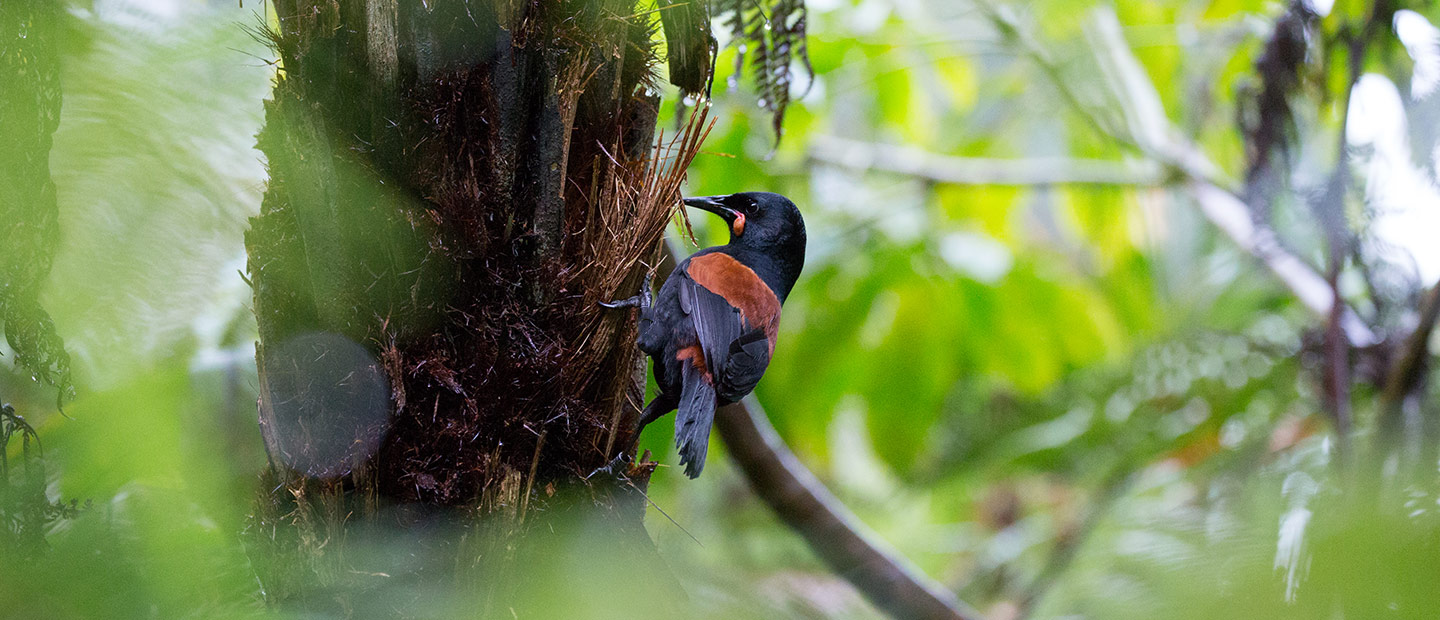This Conservation Week (10-18 September), Auckland Zoo and the Department of Conservation (DOC) are celebrating the arrival of Tīeke (North Island saddleback) to Auckland Zoo's Te Wao Nui forest aviary.
DOC's Threatened Species Ambassador Nicola Toki says tīeke are one of Aotearoa’s greatest conservation success stories.
"These sweet-sounding birds were nearly driven to extinction by introduced pests such as stoats, rats and feral cats, but thanks to intensive pest eradication programmes, they're now flourishing on pest-free islands like Rotoroa, Tiritiri Matangi, Rangitoto and neighbouring Motuihe in Auckland's Hauraki Gulf."
Their distinctive markings and unique dialects make them among the most iconic of New Zealand’s forest birds. Forty years ago their numbers had dwindled to just 500 - but today, there are more than 7,000 tīeke on predator free islands and fenced mainland sites.
Auckland Zoo's curator of ectotherms and birds, Richard Gibson, says the fact they call frequently and are noisy foragers, makes them great birds for people to engage with.
"Having tīeke at Auckland Zoo means that visitors now have the opportunity to see, hear, learn about and connect with these unique birds that were almost lost forever. We believe that when people have personal experiences with wildlife like this, they're more likely to care for and act to protect them. Tīeke are a great conservation success story, and we want to ensure they continue to thrive. This can only be done with everyone's commitment to conservation."
The tīeke have been sourced from Tiritiri Matangi Island, one of the many pest-free islands in the Hauraki Gulf (Tīkapa Moana). The island is bursting with unique native treasures thanks to one of the most successful community-lead conservation projects in the world.
The great work of the Supporters of Tiritiri Matangi Island, DOC, and university research students has resulted in tīeke flourishing on the island and as a result, tīeke have been translocated to many other locations across the North Island, to boost their numbers.


